Pepper Grinder is one of those games that has so many great moments that recounting them would be almost unfair to anyone who wants to play it. There are platforming feats here that really should be experienced fresh and untainted by their sketchy descriptions, because to say more would be to spoil the surprise. This feels doubly significant when the game itself is so fleeting, its compact and dizzying journey through the grime, magma, ice and swamps of this strange, treasure-filled island quickly coming to an end at just over three and a half hours. It left me wanting more as soon as the credits rolled, but deep down I know it’s also perfectly formed just the way it is. Instead of overdoing it, Pepper Grinder shows up, does its party trick and then disappears, leaving you to bask in the toasty glow of a good, well-made game.
In fact, to describe Pepper Grinder as a platformer is to underestimate it. This isn’t a game about jumping between ledges, but about grabbing a drill and holding on tightly as it tears the world around you apart. Solid ground means (mostly) nothing to protagonist Pepper and her trusty grinder, as you spend most of your time smashing through said ledges – as well as clearly marked pillars, mounds, and banks of elastic topsoil – before launching out into the open like a rocket-powered dynamo, flying upwards and sideways before diving back into bedrock. A bit like Ecco The Dolphin, but as a petite metal Jaws.
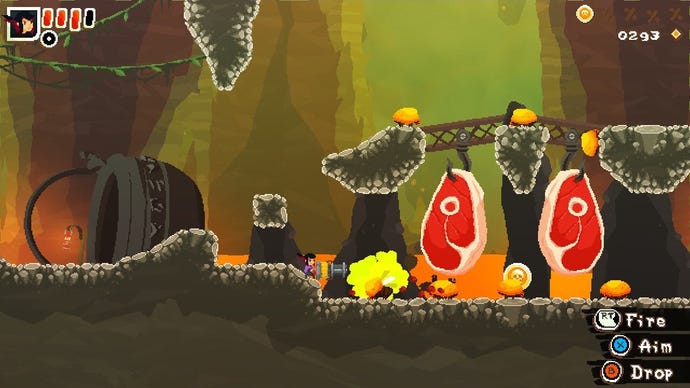
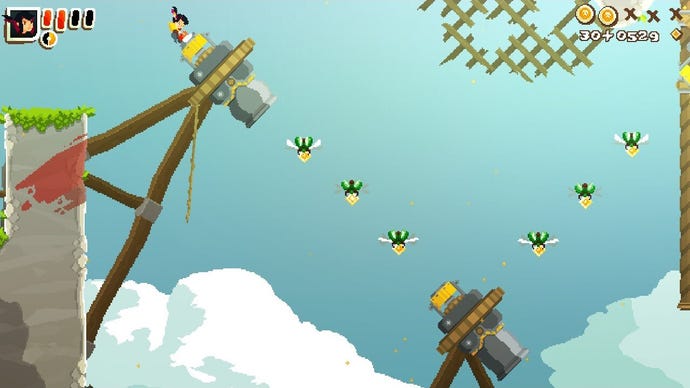
Not everything messes up the landscape, trust me. There are some conventional jumps here, but they’re mostly in the downtime, acting as a breather before the next large drill sequence. And once that drill starts, automatically racing forward, whenever you’re underground, you barely have time to stop and think about anything else. You become a missile of pure instinct, flying blindly as you propel Pepper to victory.
Despite the drill having a mind of its own, the controls for the Pepper Grinder are absolutely wonderful – assuming, of course, that you’re playing with a recommended gamepad and don’t try to make life harder for yourself by trying to employ a keyboard. I played the entire game on my Steam Deck and with every flick of the stick I always felt like I had complete control over where Pepper was going, her tight and tactile maneuvers capable of precise turns and loops even on miniature terrain slides suspended in mid-air. She’s a force of nature, ancient Pepper, and the speed at which you’ll have to steer the trajectory of her drill – whether it’s over immobile hills or plummeting sections upstream – is all part of the game’s challenge.
It’s stimulating, though thankfully the game gives you a helping hand on where to direct your mole-like powerhouse with its glittering trail of breadcrumbs of coins and gems embedded in the ground, naturally encouraging you to progress through each five-minute level. These gems were stolen from Pepper’s ship after it ran aground on the island’s coast by the pink-haired pirate Mint and her herd of green, narwhal-like goblin pals. And as she chases them deeper and deeper inland, these glittering trails take Pepper from sandy beaches to volcanic caves and icy mountaintops until you reach their immense, very unsubtle hideout in the poisonous swamps.
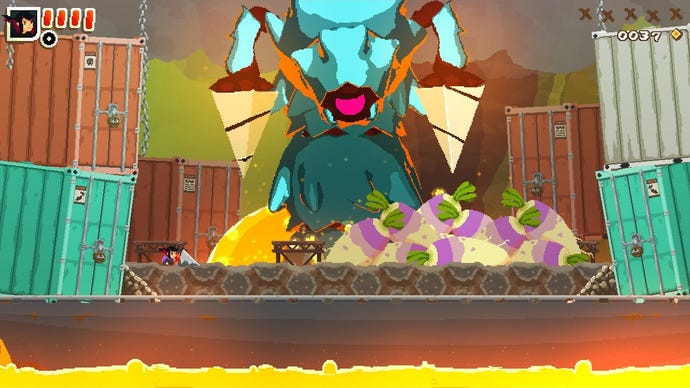
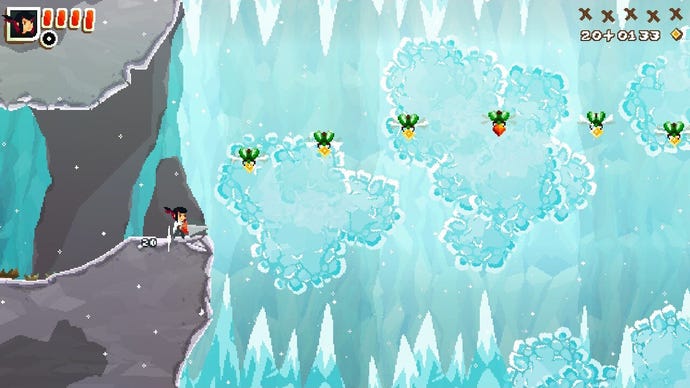
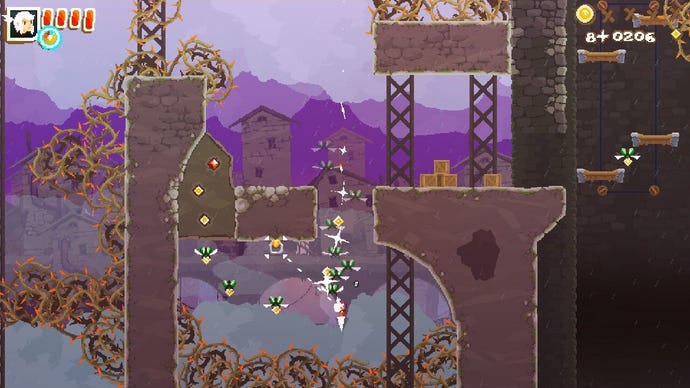
As you might expect, each of these biomes has its own challenges to traverse – the usual ‘the floor is lava’ type of thing, immense blocks of ice that need extra firepower to break, and eerie tentacles lurking deep in the bogy bogs. Flashes of extra ledges and telltale cracks in the more challenging, impenetrable landscape will also draw your eye towards secret compartments containing immense collectible coins. There are five of these on each level, which you can then exchange in each world’s curio shop for a special key that will unlock the next, even juicier level in each world. They’re definitely worth seeking out, as these locked levels are arguably the standout part of each world – although you can also spend your coins on extra capes and hair colours for Pepper, or trade your growing pile of gems for stickers and extra (albeit transient) health points.
For the most part, it’s a familiar platforming experience, but there are also bolder, more inventive obstacles that feel like pure, bespoke adrenaline trips — like the game’s creator put them there largely because they’re just damn nippy, and yes, he’s right. If damn nippy. Most importantly, though, they never feel pandering or gratuitous when they do appear. These are the moments where that power feels earned, because before them there would have been plenty of moments where you were tearing your hair out over a particularly challenging platforming sequence, or falling multiple times in a row during a tense boss fight.

If I can have one major criticism of Pepper Grinder, it’s that most of its best and most spectacular scenes rely on being executed perfectly the first time to really deliver that wow factor. Get it wrong and you’re back at the last checkpoint, and the impact of the mind-blowing, pixelated chaos unfolding around you diminishes with each subsequent attempt. It’s a flaw that can be attributed to many games, to be fair, especially platformers, but there were times when my initial excitement over a particular sequence was overshadowed by mounting frustration upon completion. This happened one too many times for my taste, and that’s not to mention the bosses – everyone could have used the emergency shop option on death to buy more health, rather than having to return to the map, go to the shop, return to the boss and endure their ever-so-long introductory cutscene again.
Pepper Grinder’s toolbox has a few dents and scratches, and some of them will require some solemn force to get through. But over the course of a three- to four-hour experience? I wouldn’t say they’re devastating enough to ruin the otherwise flawless execution of the drill. Pepper Grinder is still a fun, inventive, and brilliant genre of platformer that will regularly make you smile more than you grimace. Despite its difficulty, you’ll still be mourning when the credits roll, and if that’s not the mark of a great video game, I don’t know what is.
This review is based on the version of the game provided by publisher Devolver Digital.

